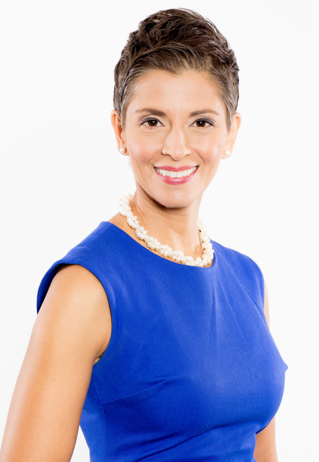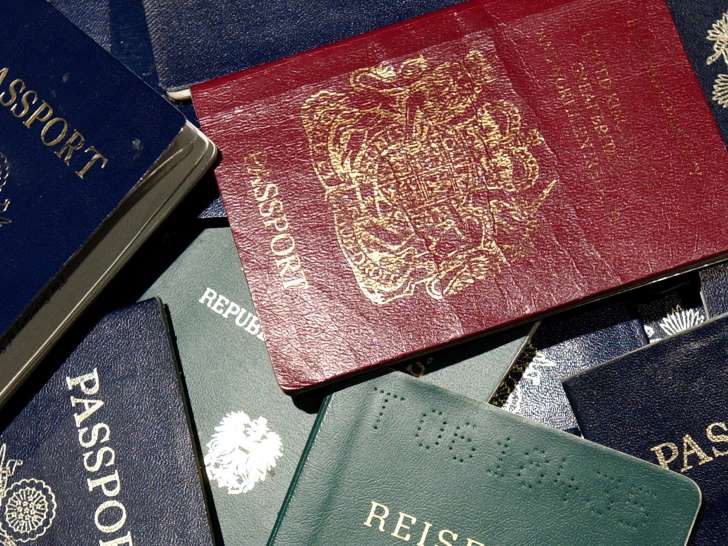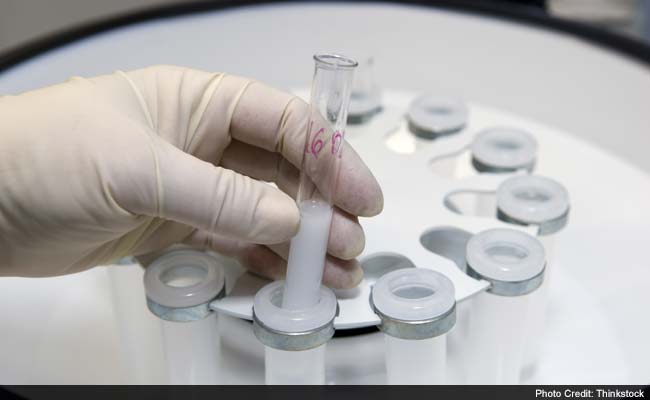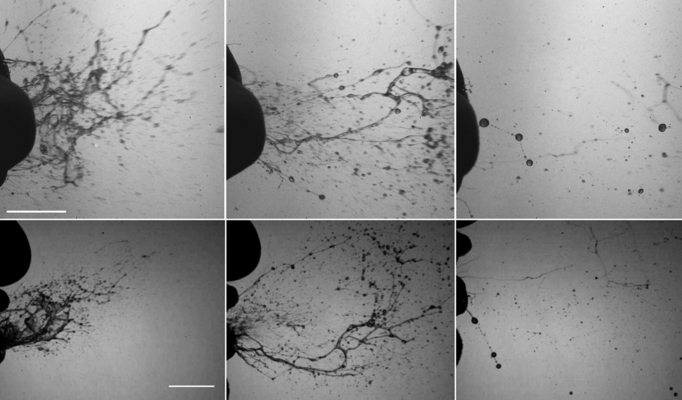
Angie Seth is one of the most famous South Asian faces on television. She is also an active columnist with a unique point of view and on the advisory chair of UN Women Canada. Jude Paul Fernandes chats up with her when she is off the air, and ready to be interviewed in an exclusive for the South Asian News.
Going by your past work regarding Sharia Law, tell us what you learned, how would you describe it in contemporary culture, and what were you hoping to achieve as a journalist?
I covered Sharia Law for years – I met with various members of the Muslim and Arab communities, with imams, spoke to several Muslim women, and policy groups. What I can take from all of the coverage is although some members of the Muslim community were looking to have the same rights as Jewish and Catholic groups in terms of providing faith-based tribunals to settle family law matters on a voluntary basis, there was a great deal of fear of what form of Sharia law would be practiced – many women told me they felt concerned and threatened by the possibility Ontario would adopt this “law” as well. The arguments for and against were heated, passionate, but very well versed and informed. I had contacts on both sides of the argument making coverage very in-depth and easy for me to get the real voices behind the issue. As a journalist it was my job to give a balanced and informative report – that was goal for every report I gave. I believe I achieved it. The Sharia Law debate was a real test to Canada’s commitment to diversity. However in this case, based on the argument, Sharia law did not speak under the real terms of diversity and multiculturalism and as a result it was rejected.
Since we are into investigative journalism talk to us about the Air India debacle that you covered…tell us the untold story. I know you could possibly write a book on this one…but a few snapshots are good enough
Air India was one of my most difficult stories to cover. I had met with so many families, seen so many tears shed, many pictures seen, and many memories shared. I covered the inquiry and the trials. What was most unnerving about the inquiry was how much
misinformation went back and forth between CSIS and the RCMP. There was credible intelligence against the accused, but it was never acted on – the phone conversations, the uncover agents, the warnings from Indian officials to Canada – but the information was either lost or mismanaged. In addition luggage was loaded on the plane without being checked – the sniffer dog and his handler never made it on the plane – it took off without getting checked. The terrorist attack also had a very personal connection for me … my family knew many of the passengers. It was also frightening, and then relief for me as my Mum was supposed to be on that flight, but opted to go to India a week earlier, returning home just days before Air India flight 182 exploded off the coast of Ireland. 182 was supposed to be her flight, thank God she did not board the plane.
Why did you decide to become a reporter? Was it an ambition, aspiration, or did a mentor lead you to your discovery of this particular career?
I have been inquisitive about things – always asking questions. I studied political science in University and that really sparked my interest into how things work, what makes people tick, how our country works, why certain decisions are made etc. As I grew older I was fascinated with how a reporter/anchor delivered and gathered information. Because of that interest there was always a desire perhaps one day be the person on the other side of the screen providing information to the viewer/reader/listener that would hopefully spark a conversation, and prompt others to ask questions. I love to tell stories, I love meeting new and interesting people – it’s a rare opportunity I never take for granted. I have a passion to retrieve information and it was that incisiveness that led me to become a journalist.
You’ve interviewed quite a few celebrities in your career, and for the benefit of our readers I will mention some–Amitabh Bachchan, Lisa Ray, Priyanka Chopra, Deepa Mehta. Who did you enjoy interviewing, and why?
Everyone I have interviewed has had unique character and passion for their craft. But there are two top celebrities that come to mind – Amitabh Bachchan and Kabir Bedi. I interviewed Amitabh Bachchan for the Heart and Stroke Foundation while I was a news anchor at OMNI Television. Simply put he was honest, interesting, humble, and human. He was also inspiring, passionate, funny, witty, and curious – it was one of my best interviews. I also had the honor to interview Kabir Bedi twice. Bedi was very gracious, charming and relevant. Interviewing him was enlightening, and fascinating.
There are many hats that you’ve worn–producer, newscaster, newsreader (is that the same?), host, blogger and columnist. What is it that you’d like to achieve, and what do you think is next on your list to be?
In this business you need to know how to multi-task. Yes I have done several jobs as a journalist, but in fact they are more connected to one another than as separate entities of the business. I have had the great pleasure of being able to work on TV, radio, and in print, and I love each area of the business. But my real passion is television. Being able to anchor the news and connect with the viewer through camera lenses is quite an opportunity. It is not an easy job and there are certainly a team of incredible people behind the scenes that make every newsroom telecast zoom to perfection – from the producers, writers, editors, reporters, control room crew, to lightening and makeup – it is a stellar team at Global News and I am lucky to be a part of it. What is next for me on the list is to be able to continue what I am doing. I anchor the 6pm weekend Global Newscast, and have the opportunity to also report news stories regularly – it is a perfect mix.
I heard someone who worked in a newsroom say this: “A newsroom story is a one-liner. It requires a great amount of talent to flesh it out.”
What is your take on this?
I agree – that one line represents the crux of the story summed up in just a few words, surrounding by an incredible, informative news story – it’s your job as a journalist to flesh it out.
Anything you might want to recount in your long and eventful career that made you angry, anything that made you afraid?
September 11, 2001 was a real turning point in my career. It changed the landscape for South Asian journalists. I was not just considered a reporter from a minority community, but now, once again, the color of my skin and my last name mattered – It made a difference for all the wrong reasons. But it also made me stronger and more determined to tell the stories of those who fell victim to the barriers and stereotypes that horrific disaster brought with it. Racism, discrimination, labeling, terrorism, all became my subject matter in front of and behind the screen. The only day I was afraid was on September 13th, 2001, when I was at the U.S border with my cameraman driving back to the Canadian side…we were stopped by a young soldier who was angry and nervous, he had his gun in my face questioning who we were there. I was afraid that day…but later I was angry at the face of ignorance.
How about happy, cheerful, are there media stories of these types, or is it always ‘bad news is the news’
News is not just about disaster, death, and destruction that make the headlines. People want to know of the good things in this world and there are many times that will be your top story. As journalists we love to tell a good feel story – it’s good for the viewer and refreshing for our sanity.
Have you ever felt that you belong to a visible minority or a profession where there may be way too many men (because of the long hours and maybe graveyard shifts)?
The industry is changing. It is not as male dominated as it used to be. We have some incredibly talented female journalists, news anchors, writers, producers, managers – running our Mother ship, our president, Barb Williams is a woman, and our lead anchor for our National newscast, Dawn Friesen, is a woman. So women are making great strides in the industry. As a South Asian journalist it can be hard to tap into the mainstream market, but our community has a strong voice that needs to be heard and mainstream media, like Global News, is listening and taking notice.
Jude Paul Fernandes
jude@thesouthasiannews.com


 South Asian News E-Paper
South Asian News E-Paper Punjabi News E-Paper
Punjabi News E-Paper

















